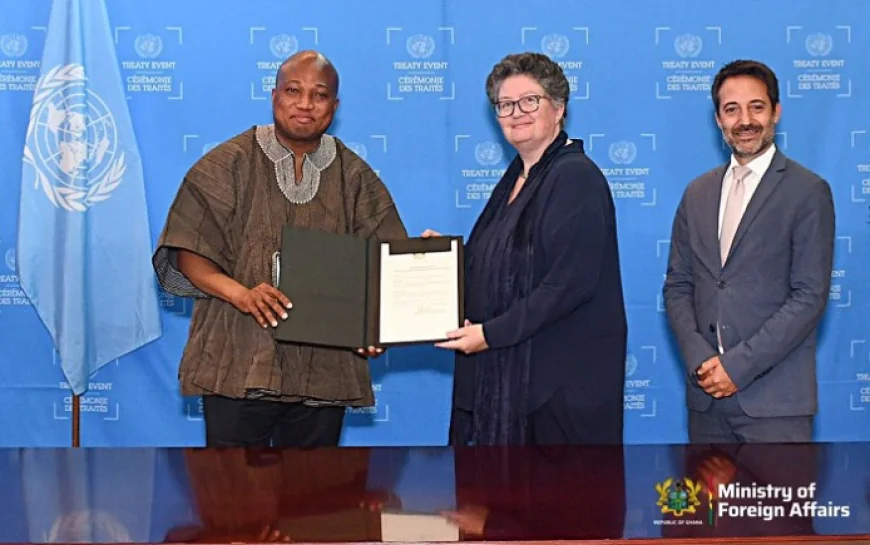Ghana Ratifies UN Treaty Banning Nuclear Weapons, Declaring Nuclear-Free Status
Ghana has formally declared itself a nuclear-weapon-free state after depositing its instrument of ratification for the Treaty on the Prohibition of Nuclear Weapons (TPNW) at the United Nations. The move reinforces Ghana’s longstanding commitment to global disarmament and positions the country as a vocal advocate for peace and security in an increasingly volatile world.
Ghana has formally declared itself a nuclear-weapon-free state after depositing its instrument of ratification for the Treaty on the Prohibition of Nuclear Weapons (TPNW) at the United Nations. The move reinforces Ghana’s longstanding commitment to global disarmament and positions the country as a vocal advocate for peace and security in an increasingly volatile world.
The announcement was made by Ghana’s Minister for Foreign Affairs, Samuel Okudzeto Ablakwa, who described the ratification as a “bold demonstration of Ghana’s enduring support for a world without nuclear arms.” In a public statement, Ablakwa praised both Cabinet and Parliament for their unanimous approval of the treaty, highlighting rare bipartisan consensus on a major foreign policy milestone.
Minister Ablakwa linked the ratification to the legacy of Ghana’s first president, Osagyefo Dr. Kwame Nkrumah, recalling his leadership in convening the 1962 “World Without the Bomb” conference in Accra. “Nkrumah would be absolutely proud of this moment,” Ablakwa wrote, framing the decision as a continuation of Ghana’s historical stance against nuclear proliferation.
The TPNW, adopted by the UN in 2017, prohibits the development, testing, stockpiling, use, or threat of use of nuclear weapons. Ghana’s ratification strengthens global calls to reduce nuclear risks, especially amid heightened geopolitical tensions and renewed arms race anxieties.
During the UN ceremony, Ablakwa met with Melissa Parke and Seth Shelden of the International Campaign to Abolish Nuclear Weapons (ICAN)—the Nobel Peace Prize-winning organization that played a pivotal role in advancing the treaty. Ghana’s ratification adds momentum to ICAN’s global campaign and reinforces Africa’s collective stance under the Pelindaba Treaty, which designates the continent as a nuclear-free zone.
Ghana’s decision is expected to:
Enhance its diplomatic standing in multilateral peace and security forums
Inspire other nations to ratify the treaty
Reaffirm its leadership in global disarmament efforts
As the world marks eight decades of the United Nations, Ghana’s ratification of the TPNW sends a clear message: principled diplomacy and historical vision still matter in shaping a safer future.




